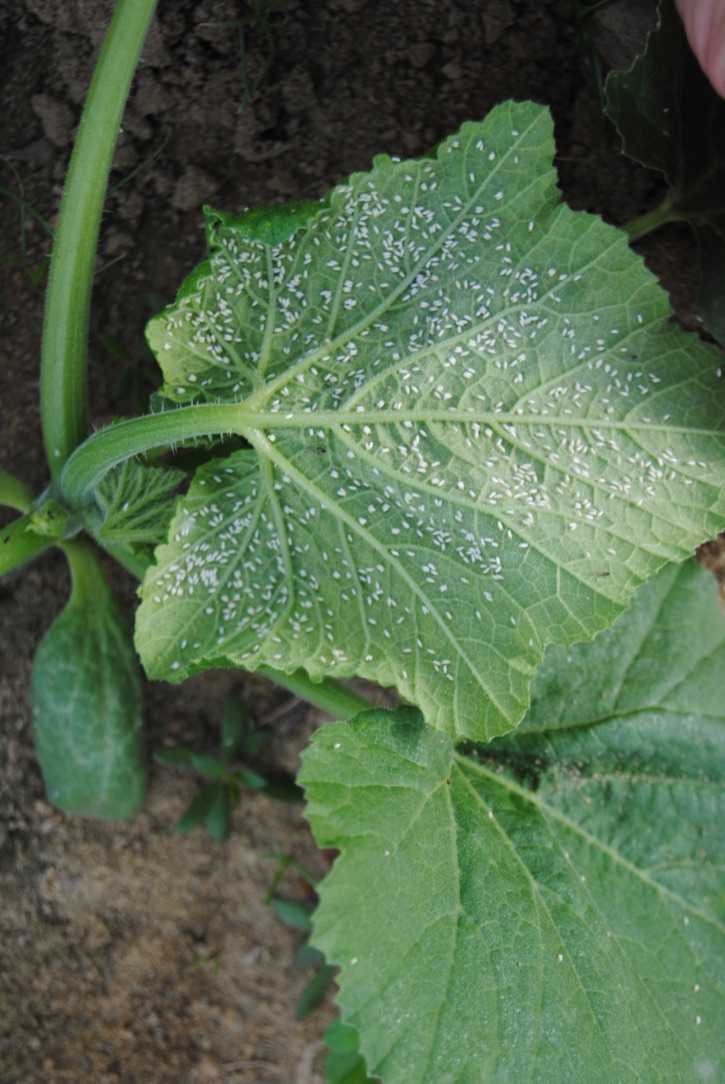“Whiteflies cause feeding injury issues in vegetables and transmit two new viruses: cucurbit leaf crumple virus and cucurbit yellow stunting disorder virus.”

Whitefly adults feed on a yellow squash seedling. Image from VSCNews
“Whiteflies cause feeding injury issues in vegetables and transmit two new viruses: cucurbit leaf crumple virus and cucurbit yellow stunting disorder virus.”

Whitefly adults feed on a yellow squash seedling. Image from VSCNews